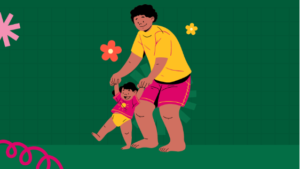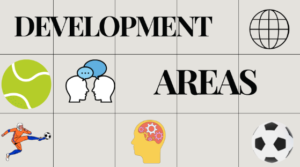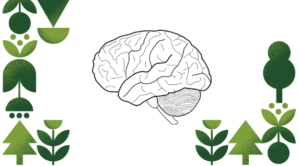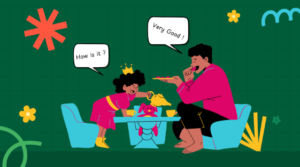Introduction of How to Encourage Child Development in Early Years
Encouraging child development in the early years is crucial as it lays the foundation for a child’s future learning, behavior, and health. During these formative years, children undergo rapid physical, cognitive, emotional, and social development. As a parent, caregiver, or educator, fostering a supportive and stimulating environment is key to promoting optimal growth in all these areas.

Understanding Early Child Development
Understanding early child development is essential for anyone involved in the care and education of young children. Early childhood, generally considered to be the period from birth to around eight years old, is a time of rapid growth and change. During this stage, children undergo significant development across various domains, which include physical, cognitive, social, emotional, and language development.

Why Early Childhood Development Matters
The early years of life – when the brain is developing connections at a rapid pace – represent the most important time for cultivating the abilities that will help a child succeed at school and in life. The right types of support in the early years can make all the difference to a child’s future.
Key Areas of Development

Child development is typically divided into several key areas:
Cognitive Development: This relates to how children think, explore, and solve problems. It refers to the development of information, problem-solving, and intellectual skills.
Language Development: A child’s ability to communicate, understand, and express themselves through language.
Social and Emotional Development: This domain covers children’s interactions with others, their emotional regulation, and their self-awareness.
Understanding these domains makes it possible to identify the best ways to foster and support development in each area.
Creating a Stimulating Environment

Importance of a Nurturing Environment: The environment of a child is important in promoting development. A child needs an environment that is enriching and safe in order to grow healthily. This includes the physical surroundings of a child as well as the affective, social, and empathic relationships.
Tips for Creating a Stimulating Environment
Safe space for exploration: Children should be allowed to explore freely in a safe environment. Parents can make their home safe for children by childproofing it and providing them with age-appropriate toys and materials to encourage independent learning.
Rich Learning Materials: Make sure that you have plenty of materials that engage children’s senses in different ways and encourage exploration. Books, puzzles, building blocks, and art materials are all great.
Positive Social Interactions: Kids learn a lot from each other. Take the time to set up playdates and other group activities, and make time for family bonding.
Check out our Fundamentals of Child Psychology course to elevate yourself.
Encouraging Cognitive Development

Activities to Stimulate Cognitive Growth
Learning : Learning to do is learning to think. It is no wonder, then, that cognitive development is associated with learning, problem-solving, and thinking skills. Thinking is an active process that needs to be challenged and encouraged. Play that allows children to explore concepts safely and comfortably contributes to cognitive growth.
Interactive play: Games such as puzzles and memory games, as well as building blocks, help children develop their problem-solving abilities and their understanding of cause and effect.
Reading to your Child: Not only does reading regularly to your child improve her language skills, but it also stimulates her imagination, introduces new ideas, and fosters a love of learning.
Achievement : Encourages your child’s natural curiosity by giving them opportunities to explore new environments, whether through outdoor play, visits to museums or zoos, or even by taking time to ask your child questions about things they find interesting in the world around them.
Encouraging Problem-Solving: Encouraging problem-solving skills in children is an essential part of their cognitive and emotional development. Problem-solving not only helps children navigate challenges but also fosters creativity, critical thinking, and independence.
Open-ended questions: These kinds of questions invite your child to think for him or herself and come up with answers.
Everyday Problem-Solving: Involve your child in everyday problem-solving, such as setting the table, helping to cook, or organizing toys.
Supporting Language Development

The Role of Communication
Learning words and phrases, listening to others, and using language to express needs and desires create opportunities for building relationships – all of this is so vital to a child’s development. Modeling the right kind of relationship with language is key. From birth, children absorb the sounds and words that surround them.
Strategies for Enhancing Language Skills
Speak and Listen: Talk to your child as soon as she can hear and for at least a few minutes every day. Please describe what you’re doing, ask her questions, and really listen to her answers so that you’re having a conversation back and forth.
Read to your kids: Children are introduced to new words, sentence structure, and the rhythm of the language when they read aloud. Select a range of books to expose your children to new topics and words.
Singing and Rhymes: Songs and nursery rhymes can be great fun acts of singing and are also useful in teaching the linguistic patterns of syntax, phonetics, and rhythm.
Encouraging Expression

Promote storytelling: Ask your child to share stories or describe something that happened during the day. This can help your child organize and frame experiences and use language in creative ways.
Give Choices: When you give your children a choice ‘‘Do you want the red shirt or the blue one?’’, you are encouraging them to use language to express their preferences and make a decision.
Fostering Social and Emotional Development
Building Relationships: The second is social and emotional development, which has to do with how children understand and relate to themselves, their emotions, and their relationships with others. Good relationships with caregivers and peers are both the consequence of and the means for fostering this development.
Promoting Emotional Intelligence

Model behavior: Children are sponges, absorbing much of what they learn from the adults in their lives. Show your child how to respond appropriately to challenging emotions. By doing so, you’ll be teaching your child how to manage her own emotions and how to interact socially with others.
Identifying and Naming Emotions: Help your child identify and name his emotions. If he’s upset, label it and identify the feelings behind it (‘I see that you’re sad. Your toy broke.’).
Encouraging Social Skills

Group Play: Encourage your child to play with others. Children learn about sharing and cooperation from playing in groups.
Role-playing: Using role-playing games to teach social interactions, like ‘We’re going to the grocery store’ or ‘We’re going to play house,’ helps children learn what to expect in social encounters.
Promoting Physical Development

The Importance of Active Play: Early childhood physical development is important because it conditions muscles, improves coordination, and creates healthy habits. Play is an important part of physical development.
Activities to Enhance Motor Skills.
Outdoor Play: Play outdoors where he can run, jump, climb, balance, and explore. Playing on playground equipment, using a tricycle, or playing ball helps with gross motor skills.
Fine Motor Skills Activities: Provide opportunities to draw and cut with safety scissors or string beads as part of a variety of other activities. These activities help to develop fine motor skills that will benefit the child when learning to write.
Enrol our Early Childhood Development Course course from Jobsland.
Creating a Balanced Routine
Balanced Activities: Ensure your child is doing a little bit of everything: physical activity, cognitively challenging tasks, and socializing.
Healthy Habits: Encourage healthy eating, regular sleep, and physical activity to support normal physical development and health
Conclusion
It is a wonderful part of your job to support child development in the early years. By knowing the key areas of development and providing support, you can help children grow and become their best selves. It is important to provide an environment that keeps children safe and stimulated, to be a model for meaningful activities, and to provide opportunities for social interactions and physically active play. Remember that children are all different, and the best approach is individualized based on the child’s interests and readiness to learn. You can help provide the foundation for their learning and growth for a lifetime.

